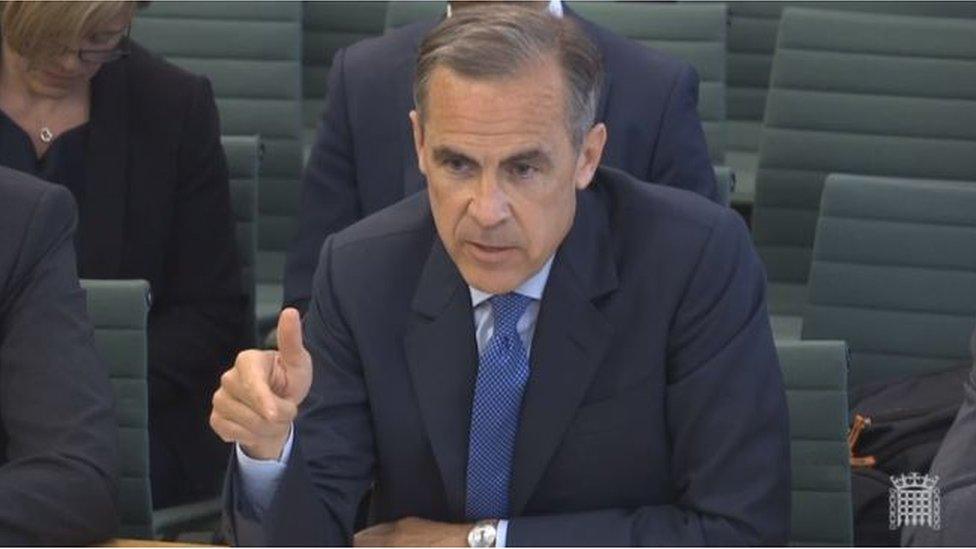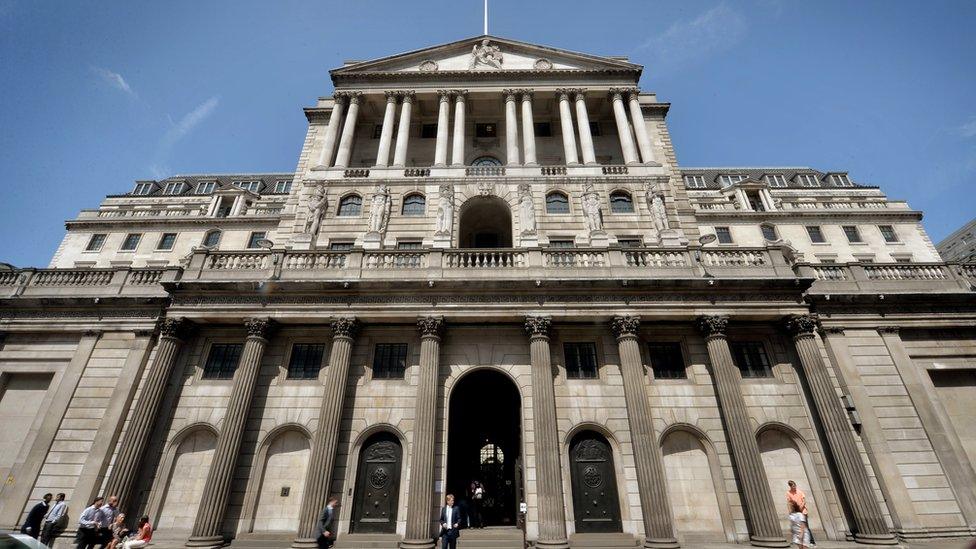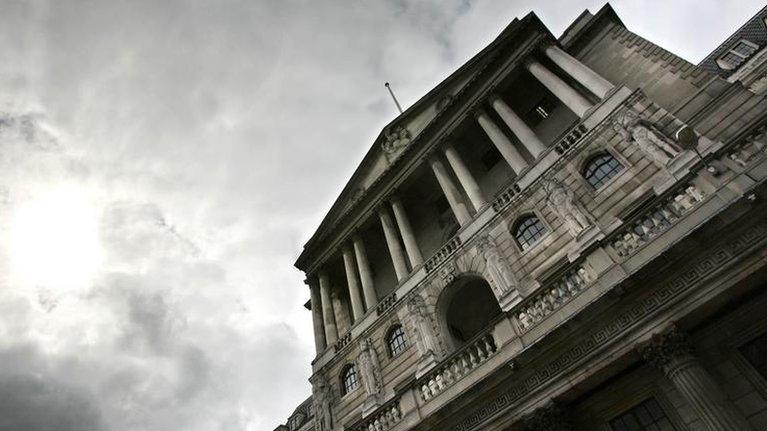Carney defends private Osborne Brexit meetings
- Published

The Bank of England governor has said it is "important" that he and Chancellor George Osborne are allowed to have private meetings.
However, Mark Carney has agreed minutes of their private talks on Brexit may be examined "discreetly" by MPs.
It was his first time giving evidence to MPs since the vote.
He denied again that the Bank of England had tried to "frighten" the public about the negative effect a Brexit vote could have on the economy.
Supporters of Leave - including two former Conservative Chancellors - accused him last month of "peddling phoney forecasts".
But Mr Carney said: "It is our responsibility to give these assessments... we have an obligation to make these assessments.
"The debate cannot be about whether we should have made an assessment. If we view something as the biggest risk, we have an obligation, a statutory obligation, to make that clear to parliament. We have an obligation to the people of the United Kingdom to come straight with them."

The Bank's monetary policy makers are expected to cut rates this week
Responsibility
Treasury Select Committee's chairman Andrew Tyrie questioned him on his private meetings with Chancellor George Osborne.
"It is important that governors and chancellors can have private conversations about important economic and financial issues and we'd be derelict in our duties if we did not," Mr Carney told MPs, adding that he did not want to limit "free-flowing" discussions.
However, he reluctantly agreed that he would be prepared for any notes taken by private secretaries to be examined by a committee representative, on the condition that "we can create a process which relies on the discretion of you and the committee so we're not putting things into the public domain are immediately commercially sensitive".
The Bank governor said he would not want to create a situation where those conversations were "minuted, recorded, tweeted in real time, that is not in the interest of monetary and financial stability". Mr Tyrie said there were precedents for sensitive conversations being examined by members of the Committee.
Mr Carney was limited about what he could say about interest rates as he is in "purdah" ahead of Thursday's Monetary Policy Committee decision. Many commentators expect the Bank rate to be cut from 0.5% to 0.25% to try to stimulate the economy.
'Increased uncertainty'
Mr Carney was also asked about the Bank's decision after the referendum to reduce the "counter-cyclical capital buffer" held on banks' balance sheets. The buffer is cash which is set aside in good times so that it can be made available when the downturn comes. The reduction will allow banks to increase credit supply to households and businesses by up to £150bn.
"We're in a situation of increased uncertainty," said Mr Carney, although he added that the banks were well capitalised.
"During this period there may be a reduction in credit demand, reduction in risk taking and in that environment we wanted to use the counter-cyclical credit buffer policy as it is supposed to be used.
"We really do want to make it as clear as possible to households and businesses that credit should be available for the right ideas and right transactions be it a mortgage or a new business," he added.
He said that reducing the buffer, to encourage banks to keep lending gave them more room. However, he added: "We wouldn't represent this as the single silver bullet, it is part, and should be seen, as part of a series of measures, including contingency planning."
- Published5 July 2016
